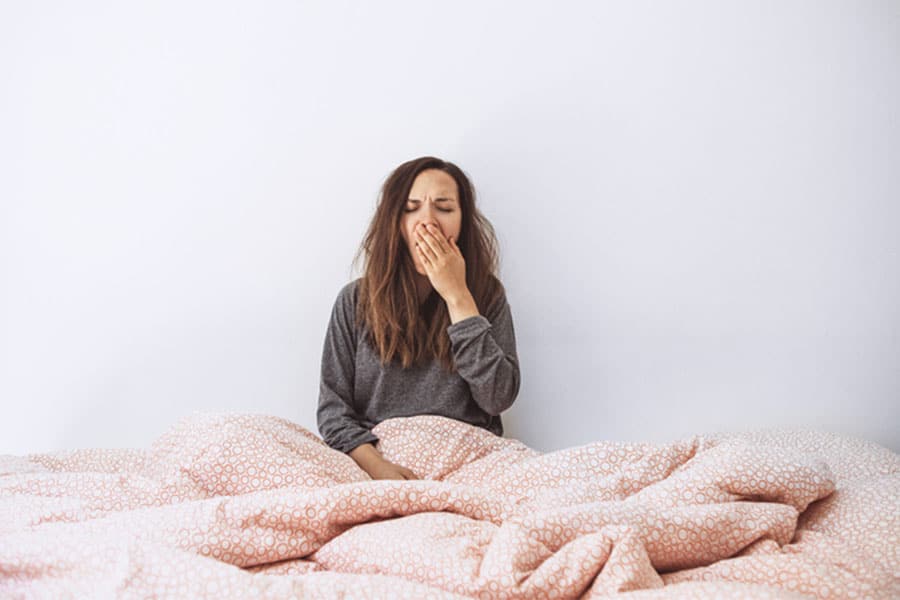Do you feel anxious every night before you go to bed? Do you struggle to fall asleep or stay asleep because of the battle inside your mind? Sleep anxiety can have long-term side effects, ranging from irritability to depressive episodes. This guide explains what causes sleep anxiety and how you can reduce your symptoms.
What Is Sleep Anxiety?
Sleep anxiety is fear or stress relating to sleep. It may happen as you approach the end of the night or while you’re lying in bed to fall asleep. Symptoms of sleep anxiety may include:
- Racing thoughts
- Rapid pulse
- Feeling on edge or otherwise unsettled
- Nervousness, restlessness, and irritability
- Difficulty concentrating
- Digestive issues
- Fast breathing or shaking
- Muscle tension
- Sadness and frustration
Many people with sleep anxiety have these experiences night after night. This may lead to insomnia, mental fogginess, general anxiety disorder, low productivity levels, and a range of other issues. If you fear going to bed because of a constant cycle of anxiety, know that you are not alone. There are ways to conquer these challenges and get the sleep you deserve.
Why Do I Feel Anxious When I Try to Fall Asleep?
The causes of sleep anxiety vary from person to person. For example, if your house was robbed late at night, you may no longer feel safe going to sleep. If you experienced a traumatic event that now haunts you with nightmares, you may avoid sleep to avoid dreams.
Some people feel stressed about sleep because they don’t think they’re getting enough sleep. They put pressure on themselves to fall asleep each night, which leads to yet another night with minimal sleep. Sleep anxiety could also be the byproduct of other fears. If you’re worried about your newborn sleeping in their crib, that fear may prevent you from sleeping soundly.
Try to identify the source of your sleep anxiety. That will help you work toward a solution.
How to Overcome Sleep Anxiety
Your sleep routine plays a critical role in your mental health. Your brain needs time to rest to process the emotions of the day. If you spend most of the night tossing restlessly, you’re likely to feel bogged down the following day. We want to help you overcome your sleep anxiety and regain control of your life.
Sleep anxiety may be a temporary season of your life that is directly linked to another event. Example: You feel anxious while your spouse is away on a work trip, and you sleep peacefully when they return. If your sleep anxiety is more widespread than that, or you cannot pinpoint the cause, you may want to lean on professionals for guidance.
Therapy can give you the tools to recognize, control, and prevent anxiety symptoms. This is particularly effective for sleep anxiety resulting from trauma. Working through the trauma in therapy will naturally reduce your anxiety.
You could also explore the use of sleep medication, depending on your symptoms and health history. Have an open conversation with your doctor about the specific symptoms you experience when you go to bed, and see what they recommend for treatment.
CNLD Neuropsychology offers mental health support for sleep anxiety and other types of anxiety. Contact us at (734) 994-9466 to schedule an appointment with an anxiety therapist.


